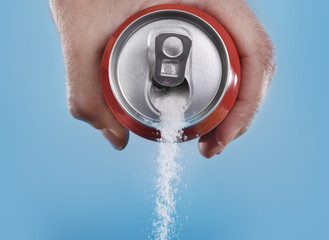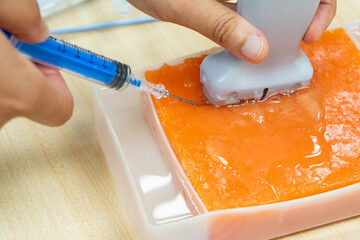
Diet Soda Consumption During Pregnancy and Breastfeeding Linked to Autism: A Study
What a mother eats during her pregnancy and breastfeeding can impact the health of her child. A new study has revealed a connection between the mother's consumption of diet soda or artificially sweetened drinks during pregnancy or breastfeeding and autism diagnosis in their sons.
Aspartame is a nonsugar sweetener widely used in several diet drinks, ice cream, dairy products, breakfast cereal, toothpaste and cough drops. The acceptable daily intake of aspartame is 50 milligrams per kilogram of body weight, according to the U.S. Food and Drug Administration (FDA).
Although widely popular as a non-calorie alternative to sugar, the safety of aspartame has been in debate for years. WHO issued a guideline in May, advising people to avoid aspartame for weight control as they found replacing sugar with aspartame may not help to lose weight in the long run. WHO's cancer research arm, IARC (International Agency for Research on Cancer), labeled it as "possibly carcinogenic to humans."
In the latest study, researchers from the University of Texas Health Science Center at San Antonio evaluated maternal aspartame consumption and the autism risk in offspring exposed to it in early life — in the womb and during breastfeeding.
The study does not prove that drinking diet sodas causes autism in kids. "Our study does not prove causality — it does not prove that maternal intake of diet sodas, and aspartame specifically, during pregnancy or nursing increases a child's risk of autism — but it does raise a major warning flag," said Sharon Parten Fowler, a lead author of the study.
Autism spectrum disorder (ASD) or autism is a neurological and developmental disorder that affects learning, behavior and interactions. It is often called a developmental disorder as children often get diagnosed with ASD in the first two years of their life.
The research team analyzed 235 children diagnosed with autism spectrum disorder and compared the data with 121 children who had "typical neurological development." To determine the participants' early life exposure, researchers used questionnaires to evaluate how often the mothers consumed diet soda or similar drinks.
Boys with autism were over three times more likely to have mothers who consumed at least one or more servings of diet soda or equivalent aspartame-sweetened product daily during pregnancy or breastfeeding. Researchers could not find a statistically significant association in girls.
"Our findings contribute to the growing literature raising concerns about potential offspring harm from maternal diet sodas/ beverages or aspartame intake in pregnancy," the researchers wrote in a paper, published in the journal Nutrients.
Article from Medical Daily.
------------------------------------------------------------------------------------------------
Like free stuff? Us too! Read below to find out how you can get 3 free CNE courses!
It is imperative that nurses involved in the care and management of patients with Iron Deficiency Anemia are familiar with the disease state, understand intravenous iron infusion administration protocols, and monitoring of potential complications that may arise with specialty infusions. Pedagogy provides the means to educate nurses on this topic with three courses dedicated to Iron Deficiency Anemia and the treatment of this disorder with parenteral iron preparations. These courses include current best practices for ideal patient outcomes and safety.
- Iron Infusion for the Treatment of Iron Deficiency Anemia
- Iron Deficiency Associated with Pregnancy
- Iron Deficiency in the Bariatric Patient
Through an independent educational grant from Pharmacosmos Therapeutics Inc, we are offering the below courses at no charge!
To take advantage of this offering, register or sign in to your Pedagogy account, and click My Courses to access your dashboard. In the Register a New Course box, find the course title in the drop-down menu and click Add to List!

